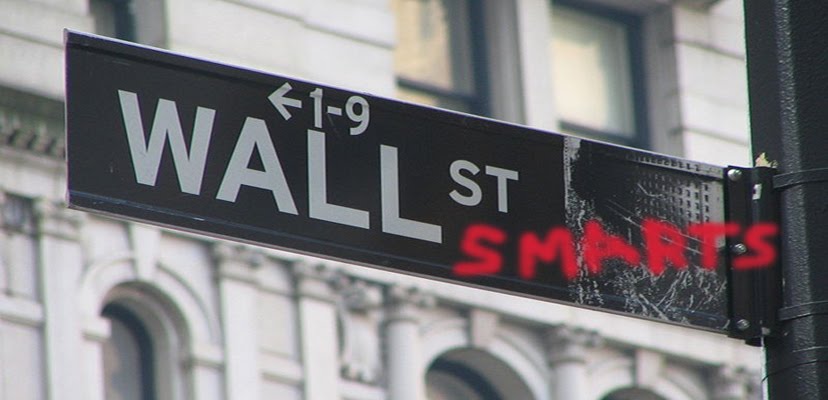WALL STREET SMARTS, THE BLOG, IS NOW WALL STREET SMARTS, THE BOOK. FULLY EDITED AND REVISED WITH NEW MATERIAL ON AMAZON
Another popular form of derivative is the futures contract. With an option, the purchaser has the right to fulfill the call or put contract. With a futures contract, the purchaser has the obligation to fulfill the purchase or sale contract. A futures contract is a form of what is called a forward contract. A forward contract is one in which a person can enter into an agreement for the purchase or sale of a commodity or a financial asset at a set price now, but need not pay for the asset until a later date, the settlement or expiration date. This would be your basic agreement between a farmer and a grain processor. Unlike an option, in which the processor would have the right to buy but not the obligation, a futures contract is a legal obligation with the price, the amount of the commodity and the date for payment agreed to by the parties. The time of payment is delayed.
A futures contract is much like a forward contract but one important difference is that any gains or losses that might accrue as the current market price varies from the futures price are realized daily, not at the settlement date. This daily accounting is referred to as the "mark to market" accounting principle. Another difference is that both parties to a futures contract have to post a bond or make a deposit with the broker acting as the intermediary in the contract to ensure their performance at the end of the contract. This deposit or bond is called the initial margin and it generally ranges between 2% and 10% of the contract value, depending on the volatility of the asset. Since each party has to "mark to market" at the end of every day, a person with a losing position may be called upon by the broker to deposit more money in his or her margin account. The futures contracts have standard provisions relating to the settlement date and the size of the contract which allows them to be freely traded on exchanges. The majority of traded contracts are futures contracts. Forward contracts tend to be much more customized to the needs of the parties. They are not normally traded on exchanges, but rather they are established through forward contract brokers who act as intermediaries.
Although it is too complicated for me, both futures contracts and options are used by professional traders to reduce or "hedge" the risk inherent in holding a stock. As a simple example, let's assume you own 100 shares of a stock which is trading today at $100 per share. You purchased the stock several months ago for $75 a share, so you have a gain of $2,500 now. Assume also that, for tax reasons, you do not want to sell the stock today. Maybe you want to put off the gain until next year in order to postpone the taxes on your profit. Although you have to wait, you are concerned that the price may fall before your target sale date. How do you capture the gain? If there is a futures contract available for your stock which fits your circumstances, you could enter into one which will require you to sell and the other party to buy your stock at some point in the future for $100 per share. You have locked in your $25 per share gain and postponed the date of sale. You could accomplish the same thing on an options exchange by buying a put option for your stock at $100 per share at the settlement date. When the life of the put option expires, you can, but need not, sell the stock at the agreed upon $100 per share. The added benefit of using a put option is that you are not obligated to sell the stock if it has continued to increase in price. I assume there is a difference in the transaction costs between using a futures contract versus a put option, but I do not know for sure.
Although derivatives like futures contracts and options would seem to be modern financial tools, such is not the case. Aristotle told a story about one of the first Greek philosophers, Thales of Miletus (circa 624 BC - 546 BC). Unlike most of his contemporaries, Thales believed weather was a natural phenomenon; not a message sent by the gods to show their pleasure or displeasure with the people. He supposedly had a knack for predicting the weather. As Aristotle's story goes, one year most folks believed the gods were angry and that the weather would result in a bad olive crop. Suspecting that the weather and the crop would be fine, Thales went to every olive press owner in the area in the spring and purchased the exclusive rights to use their presses at harvest time. Since the owners believed their presses would sit idle at harvest, they gladly took his money. As Thales predicted, the weather that year was fine and there was a bumper olive crop. Thales had the right to charge the olive growers whatever he wanted for the use of the presses. It is said that he made a lot of money. Aristotle went on to point out that Thales thought of himself as a philosopher, not a trader, and did this to demonstrate the usefulness of weather prediction, not to cash in on his insight. I suspect that all those drachmas played some part in Thales' derivative play.
Comments are always welcome.

No comments:
Post a Comment